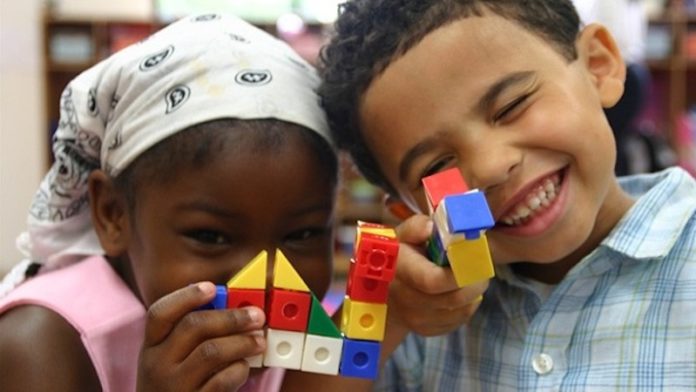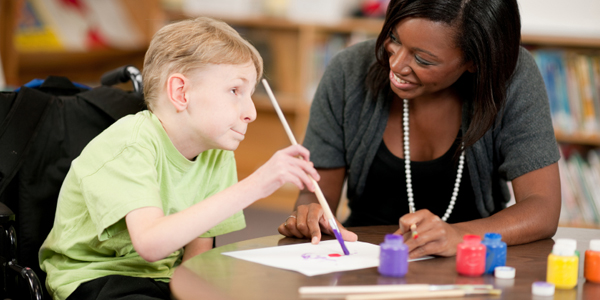Did you know that the number of students requiring special education increases every year?
According to Temple Grandin, ‘In special education, there's too much emphasis placed on the deficit and not enough on the strength’.
We may have heard a lot about the ‘no child left behind campaign’ but this requires states and school districts to ensure that all students are learning and are reaching their highest potential. Special education students should not be left out of this accountability.
Here are some of the questions that come to mind:Why do children with disability struggle in school?
How do children with special needs get equal access to express themselves without being intimidated?
Should my special child be separated from other children in the learning environment?
Special education is a topic that most parents, educators and schools run from. But this is a topic that should be discussed to enlighten everyone about its importance.
If you are reading this article, you probably know what special education is all about.
However, it is important to quickly define special education again for those who might not be familiar with it.
What is Special Education?
Special education is the practice of educating students with special educational needs in a way that addresses their individual differences and their needs.
Another definition explains special education as a form of instructions that is designed to meet the needs of students with disabilities, so they can learn the same skills and information as other children in the school.
Such disabilities include, but are not restricted to, hearing, autism and vision impairment, physical impairment, emotional disturbance and developmental delay.
The focus of special education programs is to provide easy access to quality education, regardless of the disability, special education is aimed at helping the student achieve academic and life success. Often time, special education is interchangeable with special needs.
Nevertheless, this is a debated topic that poses different views. While it is good for children with special needs to interact with others, many believe that they should be separated from other students.
This is to avoid discrimination, difficulty in socializing and source of dangers. If a special need child endangers others, he/she should be sent to a separate school.
Case Study: Special need child restrained with wooden partitions.
Take a look at a very notable story of how a child with special need was treated differently .
Heather and William Castle said the staff members at Kingsford Heights Elementary School placed wooden partitions, apparently covered with a felt-like material, around Kennedi's desk to prevent her from getting up during class. They also wonder if their daughter may have been strapped into her seat.
"Our daughter was restrained against her will," Heather Castle said. "She's traumatized, and I honestly don't know if we'll be able to trust anyone else with her ever again."
The family's allegations raise questions about whether the school violated state law at a time when the use of restraint or seclusion on children with autism is gaining more attention at the state and national levels.
LaPorte Community School Corp. Superintendent Mark Francesconi said Friday afternoon he was "generally aware there have been some concerns," but that he could not discuss the complaints in detail because of privacy concerns.
Read the full story at south bend tribune
So, why is special education so important?
1. Helps children focus on their challenges
Attempting to process information and maintain pace with the rest of the class can be challenging.
As teachers and peers move on to new ideas and skills, students with special needs often find themselves in a state of panic, particularly when new lessons are designed to build upon previously presented information.
When students have access to special education tutoring, they’ll have ample opportunity to revisit challenging subject matter, use new strategies for accurately conceptualizing and comprehending these topics and prepare for the advance into related and more complex materials.
Ultimately, rather than falling behind in class, children can take part in special education tutoring at the end of the day or week and receive a chance to catch up and keep up.
It is not uncommon for special education tutoring services to pair students with educators who live with the same or similar learning disabilities.
These tutors often have the best ability to recommend effective strategies for overcoming learning obstacles, setting and achieving goals and dealing with testing frustration and anxiety.
3. Help to identify individual learning styles
Special education tutoring is most effective when tutors can assist students in identifying their individual learning styles.
At Greensprings, our tutors all hold qualification in various special education fields of study and specialize in molding the curriculum your child is currently learning to fit their specific learning style.
4. Builds confidence in the child
Children with learning disabilities who receive special education tutoring services tend to be far more comfortable in the learning environment than those who do not.
This comfort can lead to fewer behavioral issues and fewer problems with anger, depression, frustration and anxiety.
Children who receive special education tutoring on a year-round basis, rather than just before major testing seasons often experience the most progress.
5. Alleviate testing anxiety
Having access to strategies that children can use when they encounter unexpected questions or dramatic changes in test-taking routines can alleviate some of the anxiety that students feel during these processes.
With special education tutoring, teens can confront important exams such as the SAT, with confidence and a sense of preparedness.
6. Students learn new strategies to aid in their comprehension
One of the major hurdles that teens must make is discovering how to become and remain accountable for their learning needs when entering the college environment.
Special education tutoring services do more than prepare kids for pre-college examinations. These professionals also help young learners develop the strategies and skills that they need toSpecial education in Nigeria
Nigeria runs a democratic government, yet the military characteristics still dominate most part of the country.
This means that not enough positive changes have been made in the fields of general and special education.
Many Nigerians have not benefited from special education programs, as outlined by section 8 of the National Policy on Education (NPE), mostly because of inadequate funding, cultural beliefs, negative perceptions, teacher qualifications as well as the non-existence of legal mandates.
According to Beth N. Oluka (Ph.D.), the central purpose of education is to ensure that all learners gain access to knowledge, skills and information that will prepare them to contribute to communities’ development and workplaces.
Special needs children are not excluded and they should be provided with quality education just like other children.
Why special education should be taken seriously in Nigeria
1. Future perspectives: through the years, special education in Nigeria has made some progress; however, there are no legal mandates that are put in place to enforce it.
The only special education mandate come from Section 8 of the NPE. As a result, accountability for special education is affected; services for people with disabilities are not reachable, parental rights to due process are denied; and these people with special needs are left to suffer for a cause they do not know.
Looking at the future, Nigeria must join other progressive nations to advocate for the right of learners with disabilities and help them join the mainstream society.
The people with special needs require special educators who have proper training and ample experience either through formal special education training in the university or daily lending of a helping hand by taking out time to teach, over the years.
Unfortunately, the number of young people who study Special Education as a course is low, because many Nigerian youths don’t want anything to do with people with one form of disability or the other.
There’s therefore reduction in manpower which in turn reduces the chances of several special students (or people in general) to receive proper training, studies or helps that they really need.
3. Special education programs should be customized or manipulated to suit each individuals need.
This is contrary to popular opinions that a child with disabilities or special needs should be taught in the same class with other ‘normal’ children.
Often times, there are extreme cases and such children might require one on one supervision and training. In this case, the service of a special educator is needed to support the children in a well groomed learning environment.
4. Generally, in Nigeria, an education program is meant to address each child’s or adult’s unique learning issues and includes specific educational goals.
This means that the school or learning platform must provide everything it promises according to the Nigerian Education System.
However, through the years, corruption and poor accountability has eaten through the very fabric of the nation’s education system that was supposed to tackle all issues regarding the special education, the educators and the people with physical and emotional challenges.
These shortcomings then affect the next child who’s silently and painstakingly seeking a sound solid educational background but can’t get it. Therefore, there’s every need for special education.
5. Some individuals at a very young age are easily identified as candidates for special needs dues to their medical records.
The diagnosis may have been an intellectual disability, any form brain damage, visual or hearing disabilities.
But these individuals go on bearing the burden of not living life to their full potential simply because the system required for them to do so is not in place.
Special education requires changes and accommodations, depending on the individual’s needs and preferences, to help them overcome this challenge that sadly besets them from birth.
In providing special education, these individuals grow to become helpers and models to those who look up to them in overcoming their own personal challenges. Many go ahead to become world record holders and pace setters in their respective fields.
What you should do?
Whether you are a parent, teacher, student or you are just reading this post for knowledge, your understanding of how to treat children with special need will reduce stigmatization and help such children attain their greatest heights.
‘Everybody is a genius. But if you judge a fish by its ability to climb a tree, it will live its whole life believing that it is stupid’. - Albert Einstein
Here are 20 Things Every Parent of Kids with Special Needs Should Hear.
To help your child be the most successful, make every effort to accommodate services your children receive outside of school (counselor, ABA, medical, medications, etc.) during the school year.
Integrated services can be a game-changer for parents and children who never have enough time.
Click here to learn more about Greensprings learning support for children with special needs.




